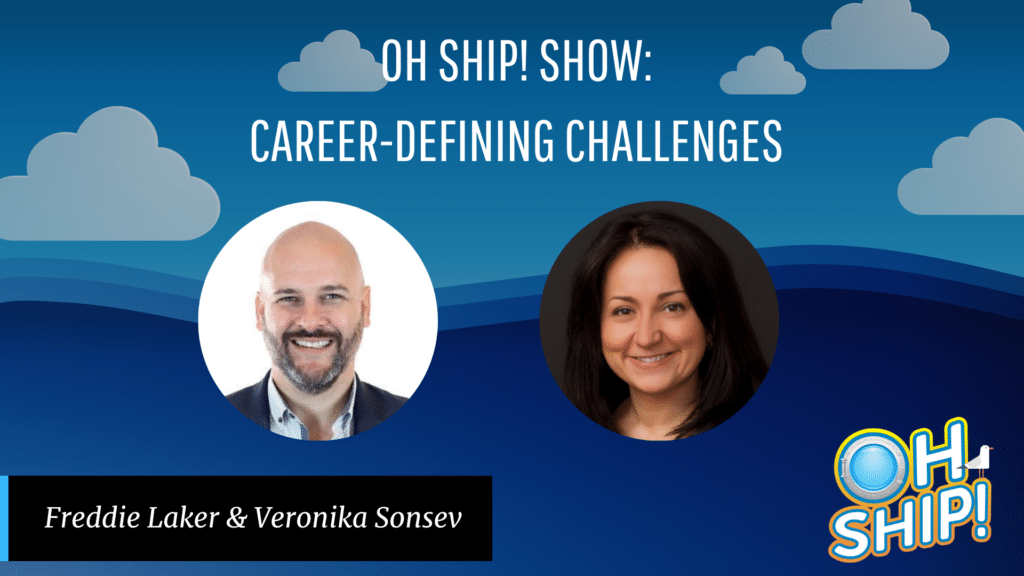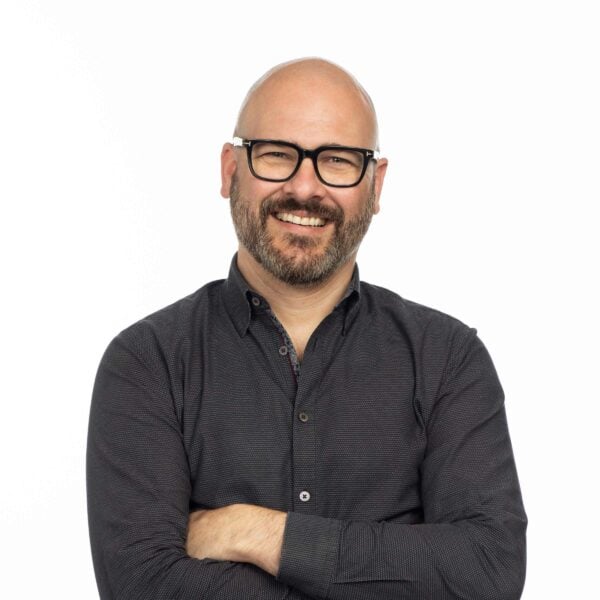Sometimes our greatest failures are also our greatest successes.
Veronika Sonsev is a co-founder of Chameleon Collective. She’s now at the forefront of the retail industry with her company CommerceNext, which hosts leading industry events. “My biggest success and my biggest failure were really the same thing in many ways,” she says. It was the founding of Inspark, her first company. They took a number of turns in their early days in an effort to create a product that customers truly needed and wanted. They started out with a consumer app meant to make communication easier across multiple platforms, which had a feature that they pivoted the business to license out. The feature then became the whole company, and they expanded on it from there.
What inspired her to become an entrepreneur?
Before she took the leap to become an entrepreneur, Veronika was running business development for a company called JumpCap, which changed course when she joined. They were a white-label search engine service. When they launched advertising, she’d just come on board and was the only person who knew anything about it.
Telefonica, their first client, was in Spain, so Veronika went there to launch the ad network. There was only one hurdle: communication. “I had to go door to door—I don’t speak Spanish—and figure out how to sell a product that no one had ever seen—mobile advertising—in Spain. It was crazy,” she says. But she got the first million dollars of revenue for the company without speaking the language.
The experience affirmed that she was a critical piece of the puzzle for them. “In many ways, it probably made me overconfident in my ability to do it all myself,” she says. “I probably read too much TechCrunch.” There were many aspects of the business she didn’t know, but she’d excelled in that one critical aspect, which planted a seed. From there, she started looking for ideas.
She was already working on other things on the side when she realized she didn’t want to do them on the side anymore; she wanted to focus on them full-time. She had money saved up to get her started, although looking back, she says it would’ve been wise to wait a bit longer. “I’d get a business much further along than I had before quitting,” she says.
She went from feeling overconfident to out of her depth very quickly when she launched Inspark. “When you start a company, you have to wear all these hats and do all these different things,” she says. “I think of it as one of the best experiences in my life because it was like getting a second MBA. You’re learning so quickly, just trial by fire, and figuring out all these different things.”
Learning to play to her strengths
“I was crazy to start this company. It was a consumer-focused business,” she says. “I’m a business development person, so I don’t know what I was thinking.” She struggled with everything related to the product, she explains. “The product was always the bane of my existence. Whether it was the design of the product experience, or whether it was making sure it was stable.”
Pivoting to focus on the feature really leveraged her strengths. She knew how to take it to market via sales. Finding a viable direction was a huge breakthrough, and listening to their customers was the secret to finding it.
Often, the business you start out with isn’t the business you end up having. Mental flexibility is the key to entrepreneurial success, Freddie adds.
Dealing with the Oh Ship! moment brought on by COVID-19
The pandemic created two major Oh Ship! moments for CommerceNext:
- They’d already completed their high-profile annual survey of over 100 executives in retail and written up the report, a major undertaking, when COVID hit and made all that data completely irrelevant. They had to resurvey in June to gain pertinent insights. Given the environment of the pandemic, though, the survey data was more valuable than ever. People were hungry for guidance, and the survey delivered.
- Events have long lead times, requiring venue booking and sponsorships. As the pandemic unfolded, they gathered data on how it would affect everyone. That resulted in their first webinar, which led to virtual lunches and, ultimately, their virtual summit. They worked to listen to their customers and respond quickly while knowing they wouldn’t be perfect. They asked solutions providers who had already paid to sponsor events to put their money into funding the webinars. “We’re not technology people. We are event people. And we’re having to learn how to broadcast live video content, but I think it’s turning out really well,” she says. Thousands of people have been attending, and many more watch the replays. They’re keeping the audience informed and engaged while putting sponsors in front of their prospects.
What lessons can others take from this success?
Learn while doing.
The biggest challenge of COVID is its unpredictability, Veronika says. “You can’t plan; it’s impossible to plan right now. Every day is different, and you have to plan in ways that are flexible so you can get out of whatever you were initially doing. You have to have lots of contingency plans; you have to be able to react really quickly.” Businesses that have succeeded in COVID have remained nimble and created the infrastructure to make quick decisions, she says. “If you wait till you’re perfect, you probably waited too long.”
Be flexible.
It’s hard for retailers to be flexible when they have huge stores to contend with, but some are finding new ways to be agile, Veronika explains. For instance, AR is becoming more widely used for things like trying on makeup. Companies are valuing their ecommerce divisions more and more, as often, they’re the only part of the business that’s really functioning. They’ve been making big decisions quickly rather than deliberating. In some cases, they’ve been setting up curbside pickup in a matter of weeks. Those that had strong balance sheets to begin with are naturally more likely to survive, she notes.
Take shortcuts.
“Look for ways that you can take shortcuts,” she says. “Good entrepreneurs don’t follow a path.” You also don’t need to plan everything. “You just have to have a thesis, figure out how to test that thesis, figure out the first few steps, and then just start doing,” she asserts.
By staying flexible, you’ll not only weather times of crisis like COVID-19; you’ll also find a direction that more fully plays to your strengths. Like Veronika, work to identify what you do best and leverage those talents—even if it requires several pivots!





